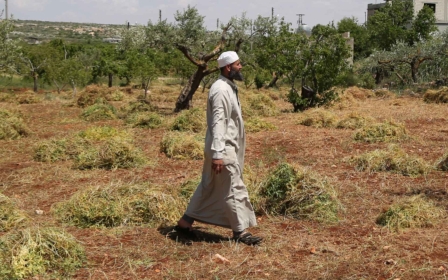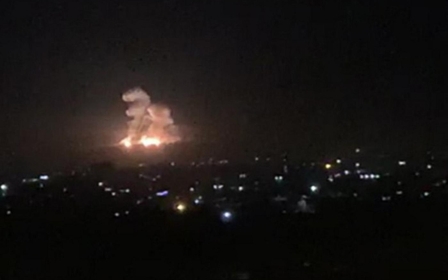Syria says Israeli strikes kill three soldiers near Damascus

Three Syrian soldiers were killed after Israeli surface-to-air missiles targeted military positions near the capital, Damascus, on Friday night, according to Syria's state media.
The SANA news agency, quoting a military source, said "the Israeli enemy carried out an aggression... that led to the death of three martyrs and some material losses".
A video posted by SANA claimed to show air defence systems being activated to intercept the Israeli missiles.
The military source said the missiles came from the Israeli-occupied Golan Heights and were intercepted by the Syrian air defences.
New MEE newsletter: Jerusalem Dispatch
Sign up to get the latest insights and analysis on Israel-Palestine, alongside Turkey Unpacked and other MEE newsletters
The Syrian Observatory for Human Rights said that the three people killed were officers and that four other members of an air defence crew were wounded.
The monitor said that the Israeli strikes targeted Iranian positions and weapons depots near Damascus.
According to the observatory, a fire broke out at one of the positions near Damascus airport, where ambulances were seen rushing to the site of the strikes.
AFP correspondents in the Syrian capital said they had heard loud noises in the evening.
Since the start of the Syrian civil war, Israel has conducted hundreds of air strikes and targeted government troops and Iran-backed forces, including Lebanon's Hezbollah.
Israel rarely comments on individual strikes but has acknowledged conducting hundreds of strikes and defended them as necessary to stop Iran gaining a foothold in Syria.
Earlier this month, an Israeli strike killed five people in central Syria, and another one near Damascus on 27 April killed 10 people, among them six Syrian soldiers, according to the observatory.
Middle East Eye delivers independent and unrivalled coverage and analysis of the Middle East, North Africa and beyond. To learn more about republishing this content and the associated fees, please fill out this form. More about MEE can be found here.




